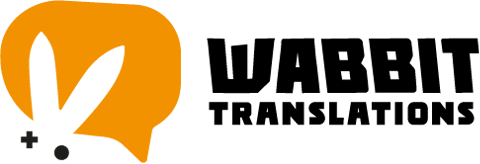
An in-house intern and two interns who performed their internship remotely tell us about their experiences
Over the course of 2020, we found ourselves having to take on the challenge of remote internships. Our team already worked in an “agile” manner, in turns – we already spent one day a week working from home, but we had never taken a remote learning course.
The internship was created as an opportunity for those who want to gain experience in the world of work, it lets you learn and at the same time provides you with the information required to assess whether a particular job is for you.
Internships are also an opportunity for companies to grow: many of our interns have, indeed, joined our network of freelance translators and continue to work with us even after their internships have finished.
We decided to compare the experiences of three interns, all of whom graduated from the University of Bologna: the first, Federica Po., who did a traditional in-house internship, and then Federica Pa. and Anna B., who did their internships remotely.
Federica Po. wrote this in her internship feedback letter:
«I’ve always been terrified I would end up working in an office. I had visions of paperwork, breaks with terrible coffee from a vending machine, gossip and unrelenting boredom. And that’s exactly what I didn’t find at Wabbit! It was certainly anything but boring: the eight hours flew by, with translation memories, thorough research amongst the nerdiest corners of the Internet, home-made cakes and excellent coffee. […]
Working in videogame localisation presents a series of specific challenges […] which motivated and stimulated me, and I’m sure have been key to my professional growth.
Thanks to the use of CAT Tools, it is possible to work remotely with other team members with ease, something which has been particularly useful following the upheaval caused by the pandemic. I do think, however, that nothing can replace the atmosphere which is created when a team like Wabbit’s meets up in the same room to work together.
I must say that I discovered that this job is a combination of all the things I like best: foreign languages, being a grammar Nazi, technology, and fantasy worlds – whether they are from videogames, books, films or comics. What more could I ask for?»
After Federica Po., we were joined by Federica Pa., and we began to think that all our interns would be called Federica!
The feedback from Federica Pa., who was the first intern to carry out her work experience remotely, confirmed that we were still able to convey the value of our work and this period of professional preparation remotely:
«[…] Unfortunately, due to the COVID-19 pandemic I had to do my entire internship from home, and I only met the team virtually. Despite this, they immediately made me feel at home, teaching me what I didn’t know very patiently and helpfully, and correcting me when I made mistakes. It was genuinely interesting to discover how a team of translators in this sector really works, far from university theory.
It was a fantastic experience, not just because I was able to work with videogames (which is my dream), but also because I learned a lot doing what I love which – as you might imagine – is to translate! From the depths of the earth to wanderings in deep space, amongst warriors, platforms, cards, wizards, paladins, placeholders, false friends and absurd strings requiring translation, every day was a discovery and a genuine adventure! The part of this experience I loved most? Everything! But If I really had to choose, it would be switching between worlds, from one universe to another with surprising speed, gaining awareness of how videogame localisation specialists really are true chameleons of the trade!»
Anna B., who has just finished her remote internship, highlighted the importance of work experience in getting to know your limits, identifying difficulties and understanding how to overcome them. For Anna, working alongside another intern (Giulia W.) was very useful in allowing her to compare notes with someone who shared her own difficulties.
Communicating using chat programs presents another challenge for remote interns – although it is essential in these times, it can make it difficult to understand the tone of the person you are talking to, above all if you don’t know them personally. For this reason, Anna pointed out, reviews and meetings via videocall were very useful in establishing more direct contact with the other members of the team.
In 2021, we are planning on working with around five interns, with the goal of continuing to get the best out of this training and growth method.
Follow us on LinkedIn!




